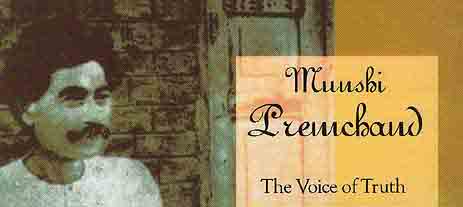
International Computer Magazine
|
Premchand – Making ordinary men heroes In ancient times, art and literature were with sagas of Kings, Gods and valiant warriors abound. Until the end of nineteenth century the recognised standards in art and literature continued to be elitist. They spoke about noble men –especially from royal families; and acts and events, mostly connected with power struggles were described. People from lower echelons were only granted the role of comic characters. With the spread of humanism and communism, the ideal of equality found roots among a section of intellectuals and their writings started depicting ordinary men as heroes and their struggle of existence was considered as the ideal source of inspiration. This school of creation is essentially known under the tag –“realism”, as they depicted life very close to reality. In India, Munshi Premchand is known as the pioneer of the school of realism. Premchand is considered as one of the foremost Hindustani writers of the early twentieth century.
|
| He wrote first in Urdu and later, in Hindi; and was the one mainly responsible in ushering in modernity in Hindustani literature under the influence of western education. His original name was Dhanpat Rai Srivastav and his initial pen name ‘Nawab Rai” and later he adopted the sobriquet “Premchand”. Premchand wrote novels, short stories and dramas and some Hindi writers adored him as “Upanyas Samrat” – the term meaning “Emperor of Novelists”. His name is also used by adding an honourary prefix “Munshi”, as Munshi Premchand. He produced around more than a dozen novels, around two hundred and fifty short stories and several essays. He also translated many foreign literary works into Hindi. May be, as his own life was replete with difficulties and sufferings, Premchand could empathize with his characters and their afflictions, and so successfully portray them in myriad details, to earn a place in posterity. His writings mainly dealt with the issues of poor and urban middle class. His perspective of life was one that of rationalism and depicted religious values as a means for allowing hypocritical authorities to exploit the meek. His last work and novel 'Godaan’ elaborates this theme to a connoisseur’s satisfaction. His writings can be taken as models of socially committed writing, |
| as he wrote about national and social issues, so as to raise the awareness of public against social evils. He was also the part of India’s nationalist movement and freedom struggle. He contributed articles espousing the cause of independence and British Government had marked him for that. Many of Munshi Premchand’s initial short stories had patriotic overtones. His first published story –“ Duniya Ka Sabse Anmol Ratan” (meaning “The most precious jewel in the world’) elaborates the idea that the most precious jewel is the last drop of blood required to attain freedom. It was published in 1907. As he progressed further in life, in March 1930, Premchand started a literary political weekly named ‘Hans’, with an objective of inspiring Indians to train their guns on British. It was perhaps a just recognition for his world view that he was elected as the first President of the “Progressive Writer’s Association” in Lucknow, in 1936. His other famous novel is “Gabban’ which explores the destructive moorings of middle class greed. Munshi Premchand passed away on eighth October of 1936. Satyajit Ray has made films of Munshi Premchand’s two works – “Sadgati and Shatranj Ke Khiladi”. Mrinal Sen, too, made a Telugu film out of another work – “Kafan”. |
 |